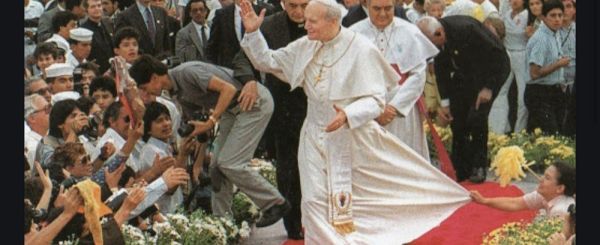1. Jesus' incisive statement: 'Render unto Caesar the things that are Caesar's, and unto God the things that are God's' (Matthew 22:21), answers a problem that was much discussed in his day and is still very much felt today. What attitude should believers have towards civil authority and the laws of the state? What commitment should they make as citizens with regard to their duties in the social and political spheres?
The occasion is offered to Jesus by a question that was much debated at the time concerning the lawfulness or otherwise of paying tribute to the emperor of Rome. The positions, in fact, were diversified and the reasons given to support the lawfulness or unlawfulness of the taxes imposed by the Romans were also different.
In this context, the question put to Jesus by the Pharisees: "Is it lawful or not to pay tribute to Caesar?" constituted an insidious challenge to the Master, considered by all as the one who taught the way of God according to truth.
As sometimes happens in the Gospel, faced with the trap set by his enemies, Jesus, with his answer, rises above the contingent controversy and goes far beyond the particular and mutually divergent positions.
On the one hand, by commanding them to return to Caesar what belongs to him, he declares that paying the tax is not an act of idolatry, but a duty of honest citizens; on the other hand, by recalling the primacy of God in human life and history, he asks them to return to him what is due to him as the one and only true 'Lord'.
2. With this statement, Jesus makes a clear distinction between the duties required of believers, as citizens and as children of God. Without, however, placing them in conflict. Thus, from a particular issue, such as the tribute to be given to Caesar, new horizons emerge for the mission of Christians in society.
By reason of faith, each one (of you) is called to transform history, to permeate all human and social reality with the spirit of the Gospel. No one can or should alienate himself from the required tasks of working to ensure a more just and fraternal civil coexistence. This duty must be done, however, in full fidelity to the Gospel message, in docile submission to the Spirit, without ever shirking what is required by the laws of the state that aim to do so. It must be done above all by giving primacy to what is in the first place: God, his plan of salvation, his law, spiritual and transcendent values.
The profession of faith in Christ, belonging to the kingdom of God and the lifestyle that flows from it are to be lived not "outside", but "inside" history as a "service" to be rendered to the city of men and therefore to the common good and the integral promotion of each person.
Faith, integrally lived, impels you to assume strong and precise responsibilities in that immense human endeavour to promote and safeguard fundamental human rights for a peaceful and fraternal coexistence among all.
3. It is therefore a commitment connected with an authentic and hard-working faith, which demands adequate training, deep convictions, consistent witness. And so it also takes on the characteristics of a true service of charity towards all men.
[Pope John Paul II, homily 21 October 1990]












